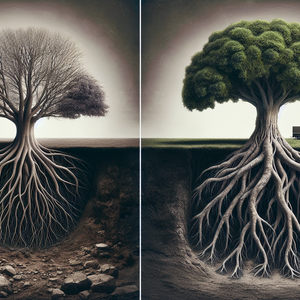Exploring Ancestral Stories Through Storytelling

Storytelling is an ancient practice that transcends cultures and generations. It serves as a bridge between the past and the present, allowing individuals to connect with their heritage. For children, stories can be a source of comfort, inspiration, and identity. They provide context to the customs, beliefs, and values that have shaped their families and communities. Research underscores the cognitive benefits of storytelling in childhood development. Studies have shown that storytelling enhances cognitive development in children, improving their communication skills and emotional intelligence. By sharing stories, children learn empathy and develop a deeper understanding of their own emotions and those of others. This emotional engagement is crucial in a world where interpersonal skills are increasingly valuable. Furthermore, storytelling can instill a sense of pride in one's heritage, helping children appreciate the richness of their cultural background.
Encouraging Storytelling at Home
Creating an environment that fosters storytelling is essential for helping children connect with their ancestral stories. Here are several strategies parents and educators can employ: 1. **Create a Storytelling Tradition**: Establish a regular family storytelling night where each family member shares a tale from their past or a story passed down through generations. This could be a weekly or monthly ritual that encourages participation and fosters a sense of community. 2. **Use Prompts and Visual Aids**: Sometimes, children may struggle to articulate their stories. Providing them with prompts or visual aids, such as family photos, heirlooms, or artifacts related to their culture, can spark memories and inspire storytelling. For instance, a photo album can prompt discussions about family traditions and significant life events. 3. **Incorporate Technology**: In the digital age, technology can enhance the storytelling experience. Encourage children to create video recordings of their stories or use apps that allow them to illustrate their narratives through art and animation. This not only preserves the stories but also makes them more engaging for younger audiences. Platforms like StoryCorps allow individuals to record and share their stories, making it a modern tool for storytelling. 4. **Connect with Cultural Resources**: Many communities offer resources such as cultural centers, museums, and libraries that host storytelling events. Participating in these activities can expose children to a broader range of stories from different cultures, enriching their understanding and appreciation of diversity. For example, local cultural festivals often feature storytelling sessions that can introduce children to historical narratives and folklore. 5. **Encourage Writing and Sharing**: Encourage children to write their own stories inspired by their family's history. This could be in the form of a short story, a poem, or even a comic strip. Sharing these creations with family and friends can boost their confidence and pride in their cultural heritage and enhance their narrative skills.
Supporting Examples
Consider the example of Maya, a young girl whose family hails from Mexico. Every Sunday, her grandmother shares stories of her childhood in Mexico, recounting traditional celebrations and the significance of family ties. These stories inspire Maya to ask questions about her heritage, leading her to learn the traditional dances and recipes that her grandmother shares. This not only fosters a strong bond between them but also instills a sense of pride in Maya's cultural identity. Another example is a school project where students create a "family tree" that includes ancestral stories. This project encourages children to interview family members, leading to a deeper understanding of their roots and the historical context of their family's journey. As they share their findings with classmates, they learn to appreciate the diversity of experiences and backgrounds, fostering a sense of community and belonging.
Storytelling is a vital means of connecting children with their ancestral stories, fostering a sense of identity and belonging. By encouraging storytelling at home and in educational settings, parents and educators can empower children to explore their cultural and religious roots, instilling pride and understanding that will carry into adulthood. As the world continues to change, the stories of our ancestors remain a constant source of wisdom, strength, and connection. Embracing this art form not only preserves our heritage but also enriches the lives of future generations, creating a tapestry of shared experiences that bind us together across time and space.
Cultural Heritage Educator
Museums, cultural centers, schools, non-profit organizations
Core Responsibilities
Develop and implement educational programs that highlight cultural heritage and storytelling techniques for children.
Facilitate workshops that encourage children and families to share their ancestral stories through various mediums, including oral storytelling and creative writing.
Required Skills
Strong background in education, particularly in cultural studies or anthropology.
Excellent communication and storytelling skills, with an ability to engage young audiences.
Digital Content Creator for Cultural Programs
Cultural institutions, educational organizations, online storytelling platforms
Core Responsibilities
Create engaging digital content, such as videos and podcasts, that explores cultural stories and heritage.
Collaborate with community members to collect and curate personal narratives and historical accounts for online platforms.
Required Skills
Proficiency in digital media tools and content creation software (e.g., Adobe Creative Suite, audio editing software).
Understanding of social media trends to effectively reach and engage target audiences.
Community Outreach Coordinator for Storytelling Initiatives
Non-profits, community centers, cultural heritage organizations
Core Responsibilities
Organize and promote community events that celebrate storytelling and cultural heritage, including storytelling festivals and workshops.
Foster partnerships with local schools, libraries, and cultural organizations to enhance outreach efforts.
Required Skills
Strong organizational and project management abilities, with experience coordinating events.
Excellent interpersonal skills for building relationships with diverse community groups.
Folklorist or Oral Historian
Universities, museums, cultural heritage organizations, research institutions
Core Responsibilities
Conduct interviews and research to document and preserve oral histories and folklore from various cultures.
Analyze and interpret collected stories to contribute to academic research or community projects.
Required Skills
Background in anthropology, history, or a related field, with expertise in qualitative research methods.
Strong analytical and writing skills for reporting findings and creating compelling narratives.
Children's Book Author Specializing in Cultural Narratives
Publishing houses, independent book publishers, self-publishing platforms
Core Responsibilities
Write and illustrate children's books that incorporate cultural stories and themes, promoting diversity and inclusion.
Collaborate with educators and cultural experts to ensure authenticity and relevance in storytelling.
Required Skills
Creative writing skills, with a portfolio showcasing previous work in children's literature or storytelling.
Knowledge of cultural sensitivity and representation in literature.


